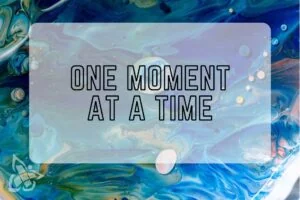Hidden Dangers Lurk In A Substance Found In Everyday Foods
What are the primary effects of GHB on the human body, and in what contexts is its use considered beneficial or harmful?
The “Fun” Drug That Turned Predatory
There’s a reason GHB became infamous. It didn’t sneak into society quietly, it arrived with flashing lights, loud music, and promises of a “better buzz.” It was the underground drug that made everything feel easier, the beat, the body, the night. Somewhere between chemistry and culture, it became known as the party drug that didn’t ask for permission.
GHB, Gamma-Hydroxybutyric acid, isn’t new. It’s been around since the 1960s, first used as an anaesthetic before doctors realised it was unpredictable, sometimes deadly. But in the ‘90s, it rebranded itself. It found its way into gyms, dance floors, and bedrooms, marketed as something “natural” and “safe.” A muscle builder. A sleep enhancer. A social lubricant.
And then it started killing people.
The truth is, GHB is a central nervous system depressant, a chemical that slows the brain and body until it forgets how to breathe. What makes it so dangerous is that it doesn’t take much to go from euphoria to unconsciousness. One extra capful can mean the difference between dancing and dying. And in the wrong hands, that’s exactly what it became known for, the “date rape drug,” the chemical weapon of nightlife.
When “Party Culture” Crosses Into Addiction
Most users don’t set out to become dependent. They just want to dance longer, feel looser, recover quicker. It’s easy to justify, “everyone’s doing it,” “it’s only for weekends.” But that’s how GHB pulls people in, it hides behind control.
You start with a few doses at a party. Soon you’re dosing at home to come down from stimulants, or to fall asleep. Before long, your body demands it every few hours to stay level. Miss a dose, and your hands shake, your heart races, your anxiety skyrockets.
Unlike many other drugs, GHB has an incredibly short half-life. That means users often redose every two to four hours, even through the night. It’s not uncommon for dependent users to carry small bottles everywhere, dosing around the clock to avoid the crash. It’s not “fun” anymore, it’s survival.
What’s terrifying is how fast this dependency develops. Some people can spiral into full-blown physical addiction in just weeks. And once the withdrawal starts, it’s not something you can ride out alone.
The Drug That Makes People Forget, Literally
The reason GHB gained its sinister reputation isn’t just because it’s addictive. It’s because it erases memory. Victims wake up with bruises, confusion, or no recollection at all of what happened. Consent becomes impossible when the brain’s ability to record is chemically switched off.
In club culture, this gets twisted. Some users call it the “liquid ecstasy” effect, claiming it makes them more social, more sensual, more alive. But what it really does is blur boundaries. The same drug that makes you euphoric also makes you powerless.
It’s easy to talk about addiction as a private battle. But GHB’s impact reaches beyond the user. It’s a drug that endangers others, not just through overdose, but through the loss of consent, safety, and accountability.
We can’t keep pretending this is just another “party drug.” It’s a cultural blind spot we’ve normalised for far too long.
GHB Dependency Behind Closed Doors
Most people picture GHB use happening in clubs or festivals, flashing lights, heavy bass, reckless youth. But much of the GHB crisis now unfolds quietly, behind closed doors.
Many long-term users are not teenagers or ravers. They’re professionals, gym-goers, parents. They use small doses throughout the day just to function. GHB has become a secret addiction, one that hides behind wellness culture and work stress.
The reality is far from glamorous. Dependency leads to paranoia, confusion, and uncontrollable anxiety. When someone tries to quit cold turkey, withdrawal can spiral into medical emergency within hours. The symptoms are brutal, hallucinations, seizures, delirium, intense sweating, and heart palpitations.
GHB withdrawal is so severe that benzodiazepines, the usual go-to for calming the nervous system, often don’t work. Doctors now use baclofen, a medication that stabilises the same brain receptors GHB hijacks. But even then, treatment requires medical supervision. Quitting on your own can literally kill you.
Why GHB Withdrawal Is One of the Worst
Withdrawal from GHB is one of the most misunderstood and dangerous detox processes in modern addiction treatment. The body becomes chemically dependent at a cellular level, and when the drug is suddenly removed, the nervous system goes into overdrive. It’s like cutting the brakes on a moving car.
Symptoms can start as mild tremors or anxiety and quickly escalate into full-blown delirium, confusion, fever, rapid heartbeat, hallucinations, and convulsions. In severe cases, people lose touch with reality and require emergency sedation.
And even after the acute phase passes, a second wave often follows: brain fog, paranoia, insomnia, and crushing anxiety. This can last for days or even weeks. It’s not just about detoxing, it’s about stabilising the brain long enough for recovery to even begin.
That’s why inpatient detox is critical. Not a weekend “cleanse.” Not a home attempt. Proper medical detox. It’s the only safe way out of GHB dependency.
The Face of GHB Addiction
Addiction has never cared about demographics, but GHB is particularly deceptive. It doesn’t carry the visual stereotypes of other substances. You don’t see track marks or yellowed skin. You see functioning people, often fit, charming, successful, quietly dosing every few hours to stay “normal.”
Many users first encountered it at the gym or through online fitness communities, told it boosts growth hormone or helps recovery. Others found it in the club scene, where it was mixed into water bottles and passed around as harmless fun.
But addiction doesn’t care about the setting. It’s the same biochemical leash, one that pulls tighter every time you dose. The person you knew starts fading. They sleep odd hours, miss work, lie about plans. Their energy shifts from sharp to foggy. They become unpredictable, sometimes paranoid. And yet, because GHB doesn’t leave visible damage, their addiction goes unnoticed until crisis hits.
It’s one of the few addictions that can blend into everyday life, until it can’t.
The Cycle of Shame and Secrecy
The stigma around GHB use fuels silence. Users don’t want to be associated with “date rape” headlines, and families often downplay the problem because it feels taboo to even say the name. But secrecy is exactly what allows the addiction to grow.
Many partners or friends suspect something’s wrong, missing time, erratic moods, emotional distance, but they don’t want to believe it’s addiction. They call it stress, burnout, or depression. And in some ways, it’s all three. GHB disrupts the brain’s ability to regulate mood, creating a rollercoaster of highs and emotional crashes.
There’s also shame. For many, GHB use started in a social setting that once felt empowering, nightlife, freedom, self-expression. Admitting it’s become destructive feels like betrayal of that identity. So they hide it. But every hidden dose, every denial, feeds the cycle. Families end up living on edge, unsure how to help without triggering conflict. Partners become detectives, friends become enablers. The addiction thrives in that emotional confusion.
Breaking that cycle starts with honesty, the hardest, rawest kind. Not just from the addict, but from the people who love them enough to call it what it is.
What Recovery Really Looks Like
Recovery from GHB addiction isn’t about “just stopping.” It’s about rebuilding a body and brain that’s been chemically rewired. It’s slow, messy, and entirely possible. But it starts with safety. A medically supervised detox is non-negotiable. Once stabilised, the next step is therapy, not just to treat addiction, but to address what GHB was being used to numb, anxiety, trauma, loneliness, perfectionism, shame.
Most treatment centres that handle GHB cases use a multidisciplinary approach, doctors, psychiatrists, counsellors, and recovery coaches working together to treat both the physical and emotional aspects. It’s not a one-size-fits-all process.
At We Do Recover, we help families and individuals find the right kind of treatment, not a quick fix, but a path that fits their situation. Whether it’s inpatient detox, outpatient therapy, or long-term rehab, the goal is to build sustainable recovery, not survival between relapses. The key message, recovery doesn’t erase the past, but it gives you a chance to write the rest differently.
GHB is one of the most deceptive and destructive drugs of our time, not because it hides in the dark, but because it hides in plain sight. It lives in gym bags, water bottles, and nightlife. It disguises itself as control while quietly taking it away. We need to stop calling it a “party drug” and start calling it what it is, a chemical that steals memory, consent, and life.
If you or someone you love is using GHB, don’t wait for proof. The risk of withdrawal alone makes delay dangerous. Reach out for help before the next dose becomes the last one.
We Do Recover connects families with the right clinical support for GHB addiction, from intervention to detox to long-term treatment. Because recovery isn’t about punishment. It’s about remembering who you were before the chemical silence took over. You can’t undo the past, but you can choose not to lose another day to it.

We’ve all heard horror stories about active addiction and its consequences but this article is…

Because it looks like normal life Alcohol abuse and addiction should be taken seriously, but…

Most families only think about an intervention after years of talking that went nowhere. They…








